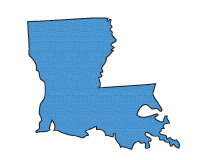Here are groups opposing government’s partnership with gambling Florida. Also, below is a column by Randy Schultz, Editor of the Editorial Page for The Palm Beach Post, who writes a terrific piece about how Florida’s experiment with gambling has failed. Using data acquired from the Florida Lottery Commission, 2 scholars assessed what groups were benefiting from the lottery-funded Florida Bright Futures Scholarships and who were being harmed. Not surprisingly, the study reported that the “net benefits of the scholarships accrue disproportionately to counties with heavier concentrations of white, wealthy, and well-educated households.” The study concluded by stating: “If the Florida Bright Futures Scholarships are going to be made more equitable, the citizens who are harmed — the poor, the less-educated, and minorities, as well as citizens who care about fairness — need to get involved.” Randy Schultz, Editor of the Editorial Page for The Palm Beach Post, wrote a terrific piece about how Florida’s experiment with gambling has failed. Read it below: One of the worst things to happen in Florida happened 25 years ago yesterday. The Florida Lottery began operating. With the Save Our Homes Act (messed up the tax system,) term limits (messed up the political system,) FCAT-based school reform (messed up education) and the invasion of iguanas and pythons (messed up the environment) the lottery has brought the wrong kind of change to the state. Without the lottery, Florida might not be facing a push to turn the state into Las Vegas East, with eye-popping casinos. Florida might not be just another state trying to rely on gambling without looking seedy. Last week, the chairman of the Senate Committee on Gaming — as if “Gaming” sounds classier than “Gambling” — said the Florida Legislature probably would not debate a comprehensive gambling bill this session. Instead, Sen. Garrett Richter, R-Naples, said the legislature would commission a study on gambling and the benefits and disadvantages that would come with allowing “destination resort” casinos. You can read that as the legislature being properly cautious on an issue that would change the character of the state. You can read it as the legislature setting up the election year of 2014 for debate on an issue that could bring big money to the ruling Republican Party as the legislature debates lifting all limits on campaign contributions. You can read it as the legislature being wary of Disney World and the other big, family-friendly attractions that oppose casinos. You can read as all of the above. However you read it, we are here largely because of the lottery. It established a new gambling beach head. It brought gambling out of the horse and dog tracks and jai-alai frontons and onto street corners. As the lottery — and Indian casinos on tribal land, day cruises and eventually the Internet — drained money from the tracks and frontons, those operations began asking for…more gambling. They needed to compete. Yet Florida voters regularly had stated their opposition to amending the state constitution to authorize casino-style gambling. In 1978, 1986 and 1994, voters rejected amendments to authorize casinos, and it never was close. The anti-casino vote was 71 percent, then 68 percent, then 62 percent. The margins were getting smaller, but 60 percent or more is considered a landslide. As the voters were rejecting casinos in 1986, though, they approved the lottery, by almost the same margin: 64 percent to 36 percent. One reason was that snowbirds were familiar with lotteries in Northeast and Midwestern states. Indeed, the Florida Lottery hired its first director from Illinois. But the main excuse for Floridians to embrace the lottery was that the money would go to education. Not just education, but education “enhancement.” Band uniforms for students in poorer schools. Computers in classrooms. Extra periods in the arts. Enrichment of all kinds. Buy a ticket and help the state. From the start, a formula has determined the allocation of lottery revenue. Fifty percent goes for winnings, 12 percent goes to administration and 38 percent goes to universities and schools. Voters envisioned the new money giving Florida the nation’s best school system. Very quickly, though, Tallahassee pulled a political bait-and-switch. As lottery money came in for education, the Florida Legislature began reducing education’s share of the money from the general budget. Within two years, school districts were using lottery money for basics, not enhancement. During the recession of 1990-91, the legislature shredded school budgets. Floridians began asking, “What happened to the lottery money?” Legislators had no good answer. So during a special session in 1997, they directed lottery money to things the public could see: school construction and college scholarships — Bright Futures. Affluent Floridians especially could see the Bright Futures money, most of which came for poor Floridians playing the lottery’s many games. But the standard for Bright Futures money was so average that, as predicted, there wasn’t enough money to meet every promise. There’s only so much lottery money. Meanwhile, those horse, dog and jai-alai operators were getting more and more pinched. Understanding public attitudes, they got behind the 2004 constitutional amendment that allowed voters in Miami-Dade and Broward counties to put slot machines at the tracks and frontons. Hey, it just opens the casino door a little bit. And they paid former Florida Education Commissioner Jim Horne to pimp for the amendment, cooing about how it would help schoolkids. As The Post warned, though, that narrow amendment — which barely got 51 percent and would have failed today — was wide enough to allow a statewide casino push. So as Florida touts a biotech future, Florida gazes at gambling, which has solved no state’s financial problems. Expect to hear about all that casinos would do for education.
The Reverse Robin Hood Effect – The Distribution of Net Benefits From the Florida Bright Futures Scholarship
How Florida’s experiment with gambling has failed



